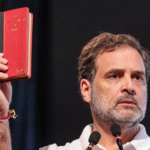Saudi Arabia’s Crown Prince Mohammed bin Salman (MBS) announced that the kingdom intends to invest $600 billion in the United States over the next four years. This major investment pledge came during a phone call between MBS and former U.S. President Donald Trump, who is considering Saudi Arabia as his first international destination in his ongoing campaign for a political comeback.
The crown prince’s remarks underscore Saudi Arabia’s evolving strategy to deepen economic ties with the United States, one of its most important geopolitical and economic partners. The proposed investment represents one of the largest pledges of its kind, highlighting Riyadh’s ambitions to diversify its global portfolio and strengthen its long-standing alliance with Washington.
Details of the $600 Billion Investment Plan
The $600 billion Saudi pledge focuses on boosting investments across several critical sectors in the United States, including infrastructure, energy, technology, and manufacturing. According to sources close to the Saudi government, the funds will largely be channeled through Saudi Arabia’s sovereign wealth fund, the Public Investment Fund (PIF), which has become the linchpin of Crown Prince Mohammed bin Salman’s ambitious economic reform agenda, known as Vision 2030.
MBS stressed during the call with Trump that the investments aim to create mutual economic benefits, with significant emphasis on job creation and technological advancements in both countries. The kingdom’s focus, he stated, aligns with its long-term strategy to build stronger business partnerships with U.S.-based companies while benefiting from American innovation and expertise.
“We believe in the enduring strength of the U.S. economy and its ability to drive innovation,” MBS reportedly told Trump during the call. “Through this investment, Saudi Arabia aims to contribute to America’s growth while strengthening economic bridges between our two nations.”  For the more information click on this link
For the more information click on this link
Key Investment Areas
While full details of the plan have not been disclosed, insiders provided an overview of the key areas of focus for the proposed investment:
- Infrastructure: A significant portion of the $600 billion will be directed toward U.S. infrastructure projects, such as highways, airports, and public transport systems. The Biden Administration’s push for infrastructure modernization, introduced through the bipartisan Infrastructure Investment and Jobs Act, has attracted substantial interest from foreign investors, including Saudi Arabia.
- Technology: Saudi Arabia aims to bolster its presence in U.S.-based tech startups and established companies in sectors like artificial intelligence, cybersecurity, and green technologies. The crown prince’s long-term goal is to transfer technological expertise back to Saudi Arabia, supporting Vision 2030’s agenda for transforming the nation into a knowledge-based economy.
- Energy and Renewables: The PIF’s recent emphasis on renewable energy and sustainability makes the energy sector a core target for Saudi investments. Riyadh plans to co-finance cutting-edge renewable energy projects in the U.S., including solar, wind, and hydrogen technologies, furthering the global shift toward a low-carbon future.
- Manufacturing and Supply Chains: Investments will also aim to strengthen U.S.-Saudi collaboration in advanced manufacturing, particularly in sectors like defense, aerospace, and electric vehicles (EVs). Saudi Arabia has sought to boost its domestic manufacturing capacity in recent years and intends to leverage its partnerships with U.S. manufacturers to achieve this goal.
Economic and Geopolitical Context
The Saudi announcement comes at a time of global economic shifts, with Riyadh seeking to reduce its dependence on oil revenues while enhancing strategic ties with major global players, including the United States. Crown Prince Mohammed bin Salman has spearheaded aggressive reforms to diversify the Saudi economy under Vision 2030, with investments abroad serving as a central pillar of that strategy.
The U.S., meanwhile, remains a vital economic partner for Saudi Arabia, with decades of collaboration in the fields of energy, defense, and trade. Saudi Arabia is one of the largest foreign holders of U.S. Treasury securities and has contributed billions of dollars to American industries. The $600 billion investment pledge reinforces Saudi Arabia’s desire to further solidify its relationship with the U.S. amid intensifying global competition and shifting energy markets.
Geopolitically, the pledge comes at a crucial juncture. The U.S.-Saudi relationship, which has occasionally been strained due to human rights concerns and disagreements over oil policies, stands to gain renewed momentum with this announcement. Economic collaboration could also bolster the alignment between the two nations in critical areas like counterterrorism, Middle East stability, and addressing global economic challenges.
Trump and Saudi Relations: A Strong Foundation for Collaboration
The phone call between Mohammed bin Salman and Donald Trump revives memories of the close ties the former U.S. president cultivated with Saudi Arabia during his time in office. Trump famously made Saudi Arabia the destination of his first foreign trip as president in 2017, signaling the kingdom’s importance as an ally in U.S. Middle East policy.
During his tenure, Trump prioritized strengthening the bilateral relationship, which resulted in record defense deals and increased economic cooperation. His administration also encouraged closer ties between Saudi Arabia and Israel, paving the way for normalization agreements between Israel and other Gulf countries.
Trump’s recent comments about making a return visit to Saudi Arabia, potentially as part of his campaign for a 2024 presidential bid, reflect the enduring relationship he maintains with the Saudi leadership. Analysts view the investment announcement as both an economic maneuver and a symbolic gesture to cement ties with a former ally and prepare for a potential Trump presidency in 2025.
Political Backlash and Human Rights Concerns
Despite its economic significance, the announcement has triggered criticism in some corners of Washington and abroad. Critics have pointed to Saudi Arabia’s controversial human rights record, citing the murder of journalist Jamal Khashoggi, crackdowns on dissent, and ongoing restrictions on freedoms within the kingdom.
Many Democratic lawmakers and human rights groups have expressed skepticism about deepening economic ties with Saudi Arabia, particularly under the stewardship of Crown Prince Mohammed bin Salman. Congressman Adam Schiff, a Democratic critic of U.S.-Saudi relations, warned against allowing economic investments to overshadow concerns about authoritarianism and human rights abuses.
“While the economic benefits are evident, the U.S. must not ignore the darker elements of its relationship with Saudi Arabia. Partnership cannot come at the expense of our values,” Schiff stated.
Saudi Vision 2030: Why the U.S. Matters
At the heart of Saudi Arabia’s investment push is its domestic transformation agenda under Vision 2030, a blueprint aimed at diversifying the kingdom’s economy and reducing its reliance on oil revenues. The Public Investment Fund (PIF), which oversees more than $700 billion in assets, serves as the driving force behind this effort.
The U.S., as a global hub for innovation, finance, and technology, plays a key role in helping Saudi Arabia achieve the ambitious goals laid out in Vision 2030. By channeling funds into U.S. industries,Arabia hopes to gain expertise and partnerships that will accelerate its own economic modernization, from creating smart cities like NEOM to fostering renewable energy projects and developing cutting-edge technologies.
The PIF has already made significant inroads in U.S.-based investments, holding stakes in companies such as Lucid Motors, Uber, and others. The new $600 billion pledge represents an expansion of these efforts, reflecting the kingdom’s growing confidence in the U.S. economy.
Economic Implications for the United States
The pledged investment is expected to bring substantial benefits to the U.S. economy, particularly in terms of job creation and infrastructure development. Saudi investments in large-scale projects, such as renewable energy plants, smart infrastructure, and advanced manufacturing facilities, could generate thousands of jobs in critical industries.
Moreover, the strategic injection of funds comes at a time when the U.S. is working to maintain its global leadership in technology and renewable energy amid intensifying competition from China. The influx of Saudi capital could serve as a valuable resource in advancing these efforts, particularly for American startups and clean energy ventures.
International Reactions
The announcement has drawn mixed reactions from other global powers, particularly in Europe and Asia. While some view the investment as a welcome boost for the global economy, others see it as a strategic maneuver aimed at reinforcing Saudi Arabia’s influence in geopolitics.
China, Saudi Arabia’s other major economic partner, is likely to monitor the developments closely. Over the past decade, Riyadh has significantly deepened its ties with Beijing, signing key energy and infrastructure deals as part of a broader diversification strategy. Analysts suggest that Arabia’s outreach to the U.S. indicates a desire to maintain a balanced relationship with both global superpowers while avoiding over-reliance on either.  For the more information click on this link
For the more information click on this link
Moving Forward: The Bigger Picture
The $600 billion investment pledge reflects the evolving nature of U.S.-Saudi relations in an era of global competition, rapid technological advances, and shifting geopolitical dynamics. While critics remain skeptical, the move signals Arabia’s intent to position itself as a key player in the global economy and reaffirms its deep ties with the United States.
As the specifics of the investment plan take shape in the coming months, observers will watch closely to see how this significant injection of Saudi capital will influence U.S. industries, bilateral ties, and the broader global economic landscape. At the same time, it remains to be seen whether these economic overtures can overcome lingering concerns about governance, human rights, and shared values in the relationship between the two nations.
For now, the announcement represents a bold statement of intent from Arabia—a kingdom charting its course in a rapidly changing world. As Crown Prince Mohammed bin Salman pushes ahead with his ambitious agenda, the investment will likely become a defining chapter in the long-standing partnership between the two global giants. ALSO READ:- LGBTQ+ Couples in Thailand Celebrate as Same-Sex Marriages Become Legal Under New Marriage Equality Act 2025





